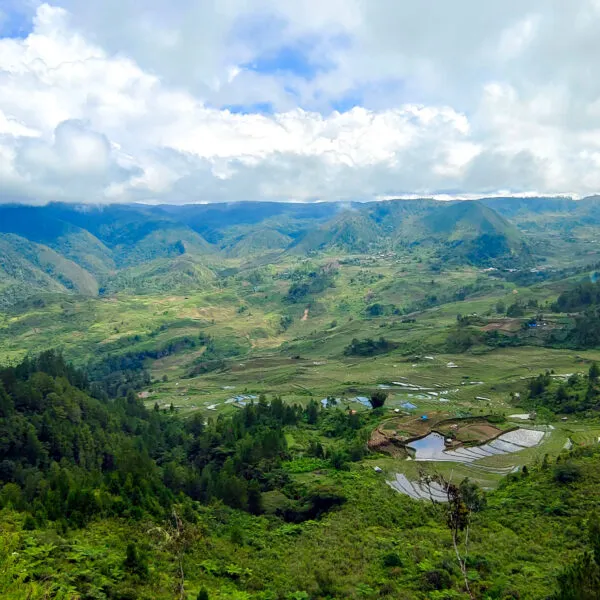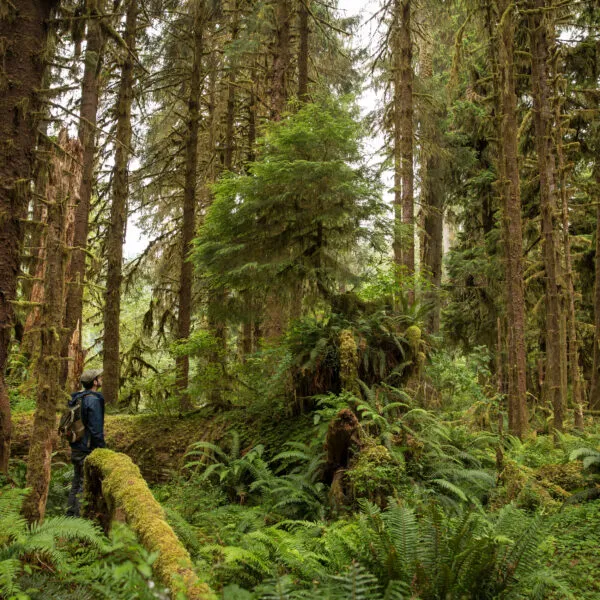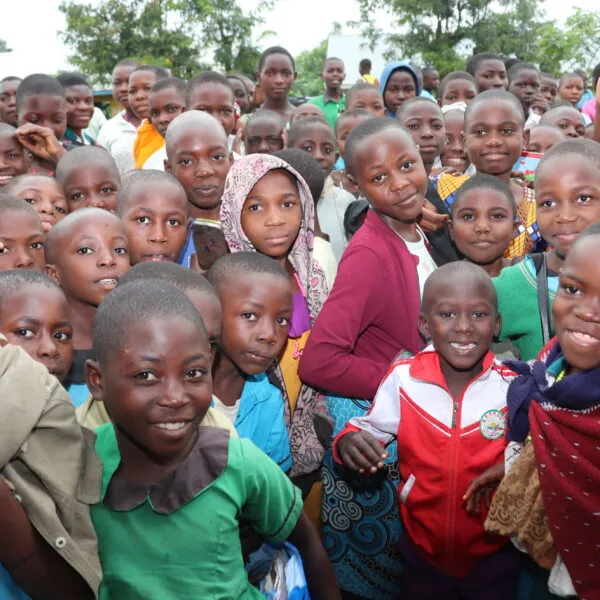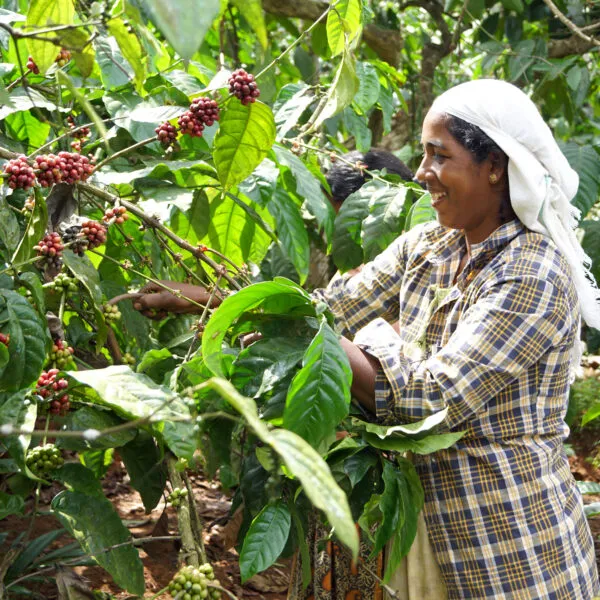Amid Ghana’s tropical forests and lush hills, the cocoa and gold industries are booming. Ghana is the largest gold producer in Africa, and Ghana and Côte D’Ivoire account for over 60% of global cocoa production. While this gives a major boost to the country’s economy, it has also brought serious challenges, including a rise in forced labor and child labor. An estimated 1.5 million children are engaged in child labor in cocoa production in Côte d’Ivoire and Ghana, while an estimated 10,000 children in Ghana are involved in mining. Rather than attending school, these children often work under hazardous conditions: carrying heavy loads, using dangerous tools like machetes and hammers, inhaling dust from processing machines, and handling mercury and pesticides, among other things.
Our work in the region has shown us that the struggles of children and vulnerable workers in Ghana’s cocoa and gold communities are intimately connected. Both are rooted in the challenges of multi-dimensional poverty—from gender inequality to lack of access to education and health services—and many communities in rural areas of Ghana work in both sectors. To address these struggles head on, we believe that a systemic, landscape approach is needed. Together with the International Cocoa Initiative and Solidaridad West Africa, we are working with cocoa and gold mining communities throughout Ghana to protect and support children and vulnerable workers against forced labor and the Worst Forms of Child Labor (WFCL), including trafficking, debt bondage, and sexual exploitation.
Location
Ghana:
- Western North: Bibiani-Anhwiaso-Bekwai District
- Ashanti: Atwima Mponua District
- Western: Wassa Amenfi West District
- Eastern: Atiwa East District
Period
2021 to 2024
Partner communities
This project will bring together stakeholders across cocoa supply chains and gold mining communities in Ghana. We will work with 120 cooperatives, farmer groups, and gold associations, collectively covering over 300,000 members. 20 international companies purchasing cocoa from Ghana and Côte D’Ivoire and 30 governments officials in Ghana across seven different departments will also take part.
12,500 vulnerable individuals, including children, youth, and workers, are expected to benefit directly from the project.
Project objectives
Rainforest Alliance field staff alongside the International Cocoa Initiative and Solidaridad West Africa will lead activities in three key areas to improve the livelihoods of farmers and workers on the ground in Ghana.
- Increase government accountability and effectiveness
This project will provide training to the Ghanaian government and protection services (including ministries and agencies dealing with forced labor and the WFCL) as well as to Community-Based Organizations (including local farmers’ and miners’ groups who play pivotal roles in sharing information and resources). Training will familiarize these groups with forced labor and child labor indicators that can help them identify, prevent, and remediate incidences. - Address gender and human rights issues
We will train cooperatives and cocoa supply chain actors on gender issues and human rights due diligence (HRDD) activities, such as grievance mechanisms, complaint and remediation procedures, and employee contracts. They will also gain access to tools like the Child Labor Monitoring and Remediation System and learn more about the Rainforest Alliance assess-and-address approach so that they can respond more effectively to any issues in their groups or supply chains. - Create more resilient farming and mining communities
Preventing and remediating child labor and forced labor starts with making communities aware of their rights, available services, and economic opportunities, as well as the signs, indicators, and risks of forced labor and the WFCL. We will carry out a range of activities to that end, including enrolling children back in school, connecting young adults to Technical and Vocational Education and Training, linking households to service centers that can offer essential guidance and inputs, establishing a remediation fund for survivors of child and forced labor, providing farmers with skills training that can help them diversify their income sources, and more.
Desired impacts
The over-arching goal of this project is to improve the social and economic conditions of children and other vulnerable people in Ghana’s cocoa and gold-mining communities and protect them against forced labor and the WFCL.
By the end of this project, we aim to achieve the following outcomes:
- Resilient communities where children are protected
10,000 adults will gain access to decent employment opportunities, entrepreneurship training, loans, and connections to new markets. Communities—particularly women and vulnerable groups in those communities—will become aware of the indicators of forced labor, exploitation, and the WFCL as well as of their rights and services available to them. This will result in less incidences of child and forced labor and increased enrollment of identified and at-risk children into basic schools and vocational training. Additionally, four cocoa and gold mining cooperatives will be linked to social services, and 2,500 survivors will benefit from our established remediation fund. - Companies and farmer groups acting on forced labor and the WFCL
80 cooperatives, farmer groups, and gold associations, collectively covering over 300,000members, as well as 20 international businesses purchasing cocoa from Ghana and Côte D’Ivoire will introduce gender sensitive HRDD and work to address human rights issues in their organizations and supply chains. This will lead to improved working conditions, such as the introduction of leave days, the signing of contractual agreements, better income opportunities, more female workers participating in decision-making, and stronger enforcement of labor rights. - More government support
The Ghanaian government will increase the number of regular inspections by labor inspectors at the district, regional, and national levels and train more government officials on how to prevent, identify, and address child and forced labor. With greater cooperation between government agencies, victim support services will improve and a better mechanism for tracking cases of child labor will be developed. As a result of stronger criminal enforcement, we will see more prosecutions of perpetrators or offenders of child and forced labor as well as more calls to child-labor toll-free hotlines for the cocoa and gold sectors.
Funders
The Norwegian Agency for Development Cooperation
Implementing partners
Rainforest Alliance contact
Joyce Poku-Marboah, child and forced labor senior project manager
jpmarboah@ra.org




